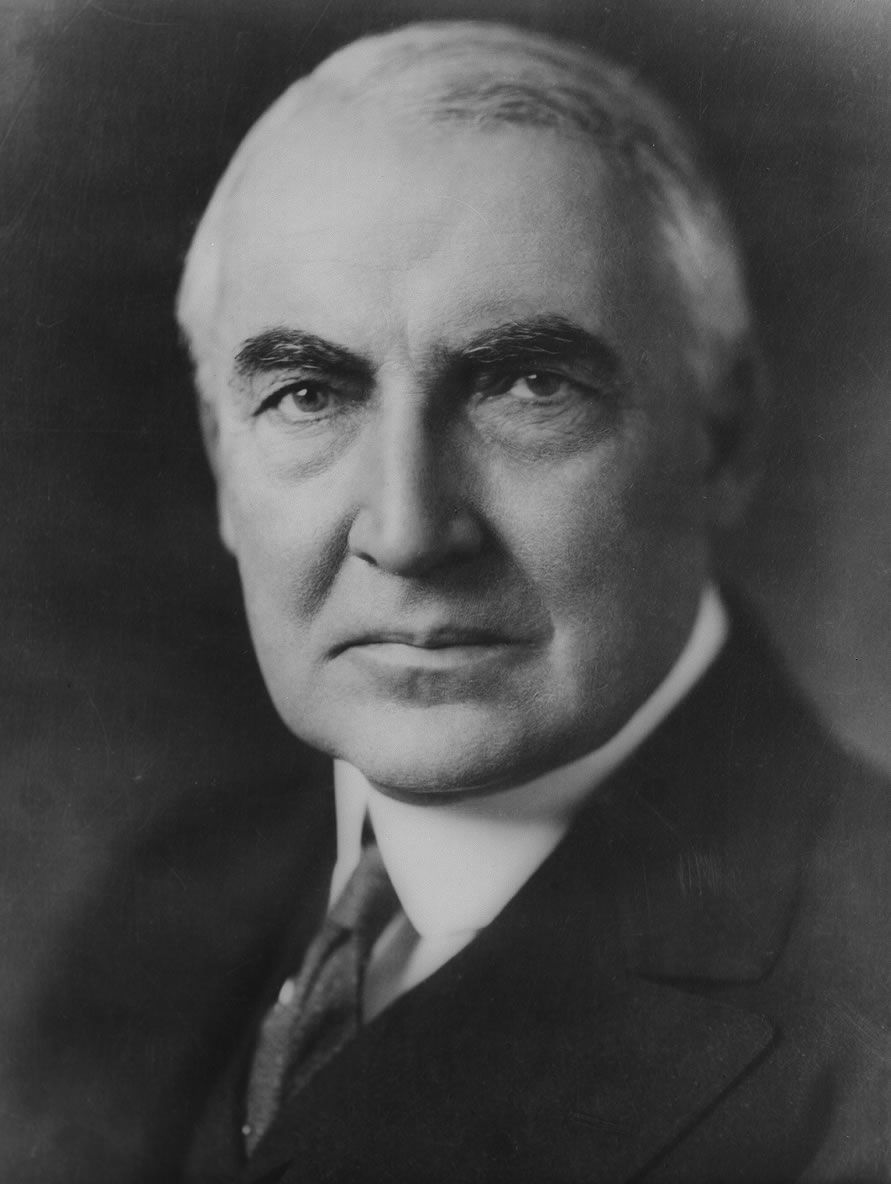1918 address to the Sons and Daughters of the American Revolution.
Famous Warren G. Harding Quotes
1920s, The American Soldier (1920)
1920s, The American Soldier (1920)
1910s, The Republic Must Awaken (1917)
Speech delivered in Birmingham, Alabama, quoted in the Christian Science Monitor, 27 October 1921, p. 2.
1920s
Speech at Norfolk, Virginia (4 December 1920), quoted in The Times (6 December 1920), p. 17.
1920s
Warren G. Harding Quotes about the world
1910s, The Republic Must Awaken (1917)
1920s, Nationalism and Americanism (1920)
1920s, Nationalism and Americanism (1920)
1920s, The American Soldier (1920)
1920s, Nationalism and Americanism (1920)
1910s, The Republic Must Awaken (1917)
Warren G. Harding Quotes about people
1920s, The American Soldier (1920)
1910s, The Republic Must Awaken (1917)
Relayed by Bishop William F. Anderson as a remark by a friend of Harding, in "Pictures Harding as Man of Prayer" (2 April 1922) New York Times
Attributed
Here is the sample of liberty no storms may shake. Here are the altars of freedom no factions shall destroy. It was American in conception, American in its building. It shall be American in the fulfillment. Factional once, we are all American now. And we mean to be all Americans to all the world.
1920s, The American Soldier (1920)
Warren G. Harding Quotes
“We want them to be Republican because of what we mean to do for the United States of America”
1920s, Nationalism and Americanism (1920)
Context: The misfortune is not alone that it rends the concord of nations. The greater pity is that it rends the concord of our citizenship at home. It's folly to think of blending Greek and Bulgar, Italian and Slovak, or making any of them rejoicingly American, when the land of adoption sits in judgement on the land from which he came. We need to be rescued from divisionary and fruitless pursuit of peace through super government. I do not want Americans of foreign birth making their party alignments on what we mean to do for some nation in the old world. We want them to be Republican because of what we mean to do for the United States of America. Our call is for unison, not rivaling sympathies. Our need is concord, not the antipathies of long inheritance.
1920s, Nationalism and Americanism (1920)
Context: The misfortune is not alone that it rends the concord of nations. The greater pity is that it rends the concord of our citizenship at home. It's folly to think of blending Greek and Bulgar, Italian and Slovak, or making any of them rejoicingly American, when the land of adoption sits in judgement on the land from which he came. We need to be rescued from divisionary and fruitless pursuit of peace through super government. I do not want Americans of foreign birth making their party alignments on what we mean to do for some nation in the old world. We want them to be Republican because of what we mean to do for the United States of America. Our call is for unison, not rivaling sympathies. Our need is concord, not the antipathies of long inheritance.
Speech delivered to a segregated, mixed race audience at Woodrow Wilson Park in Birmingham, Alabama on the occasion of the city's semicentennial, published in the Birmingham Post (27 October 1921).
1920s
Speech at Birmingham, Alabama, published in the Birmingham Post (27 October 1921) quoted in Political Power in Birmingham, 1871-1921 (1977) by Carl V. Harris (1977) University of Tennessee Press, ISBN 087049211X.
1920s
1920s, The American Soldier (1920)
“I don't know much about Americanism, but it's a damn good word with which to carry an election.”
Actually an exchange between journalist Talcott Williams and Sen. Boies Penrose (1919)
What is Americanism?
Damn if I know, but it's going to be a damn good word with which to carry an election.
Misattributed
Speech during Warren Harding's 1920 presidental campaign, critizing Woodrow Wilson's Haitian policies; quoted in Democracy at the Point of Bayonets (1999) by Mark Penceny, p. 2. (The Assistant Secretary of the Navy he refers to is Franklin Roosevelt, who was the Democratic vice-presidential candidate in 1920).
1920s
Remark to editor William Alan White, as quoted in Thomas Harry Williams et al. (1959) A History of the United States.
1920s
“I am not fit for this office and should never have been here.”
Quoted in Nicholas Murray Butler (1939) Across the Busy Years vol. 1.
1920s
Speech https://books.google.com/books?id=POhHuoGILNYC&pg=PA51 (12 April 1921).
1920s
Speech in Boston, Massachusetts (24 May 1920); Harding is often thought to have coined the word "normalcy" in this speech, but the word is recorded as early as the 1850s as alternative to "normality".
1920s
1910s, The Republic Must Awaken (1917)
Inaugural address (4 March 1921).
1920s
Remark to Judson Welliver, as quoted in Francis Russell (1968) The Shadow of Blooming Grove.
1920s
Address to the 1916 Republican convention.
1910s
Inaugural address (4 March 1921).
1920s
